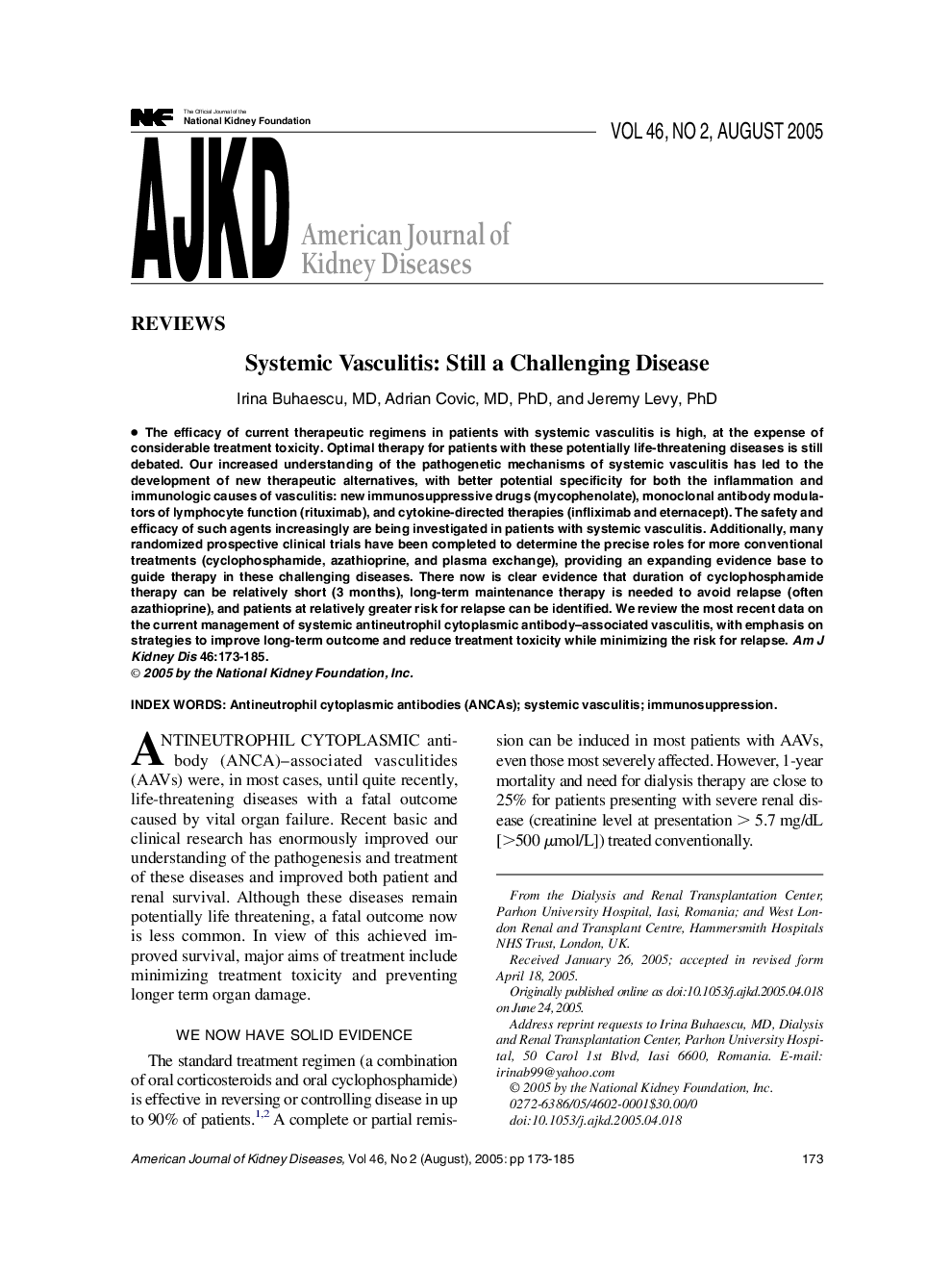| Article ID | Journal | Published Year | Pages | File Type |
|---|---|---|---|---|
| 10047449 | American Journal of Kidney Diseases | 2005 | 13 Pages |
Abstract
The efficacy of current therapeutic regimens in patients with systemic vasculitis is high, at the expense of considerable treatment toxicity. Optimal therapy for patients with these potentially life-threatening diseases is still debated. Our increased understanding of the pathogenetic mechanisms of systemic vasculitis has led to the development of new therapeutic alternatives, with better potential specificity for both the inflammation and immunologic causes of vasculitis: new immunosuppressive drugs (mycophenolate), monoclonal antibody modulators of lymphocyte function (rituximab), and cytokine-directed therapies (infliximab and eternacept). The safety and efficacy of such agents increasingly are being investigated in patients with systemic vasculitis. Additionally, many randomized prospective clinical trials have been completed to determine the precise roles for more conventional treatments (cyclophosphamide, azathioprine, and plasma exchange), providing an expanding evidence base to guide therapy in these challenging diseases. There now is clear evidence that duration of cyclophosphamide therapy can be relatively short (3 months), long-term maintenance therapy is needed to avoid relapse (often azathioprine), and patients at relatively greater risk for relapse can be identified. We review the most recent data on the current management of systemic antineutrophil cytoplasmic antibody-associated vasculitis, with emphasis on strategies to improve long-term outcome and reduce treatment toxicity while minimizing the risk for relapse.
Related Topics
Health Sciences
Medicine and Dentistry
Nephrology
Authors
Irina MD, Adrian MD, PhD, Jeremy PhD,
